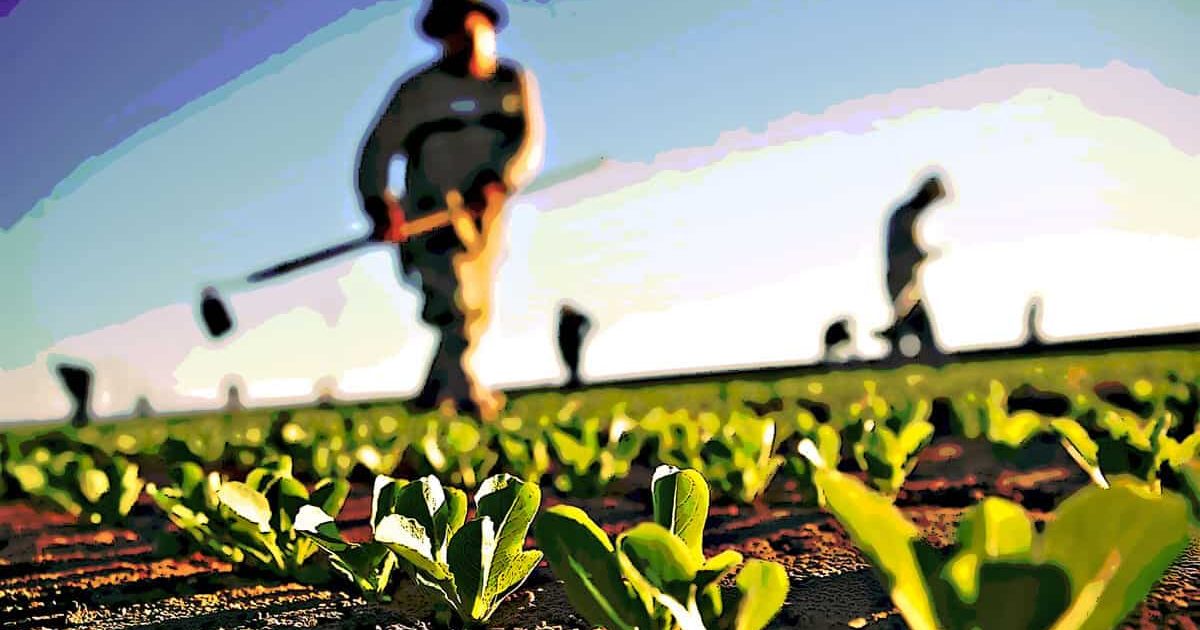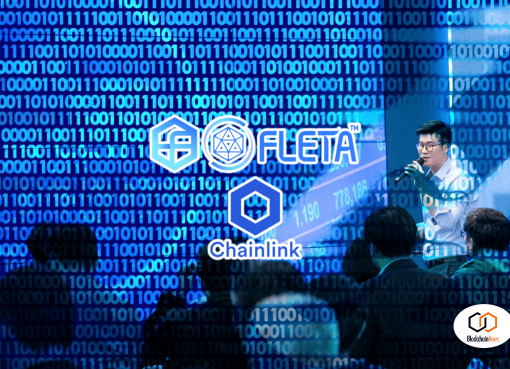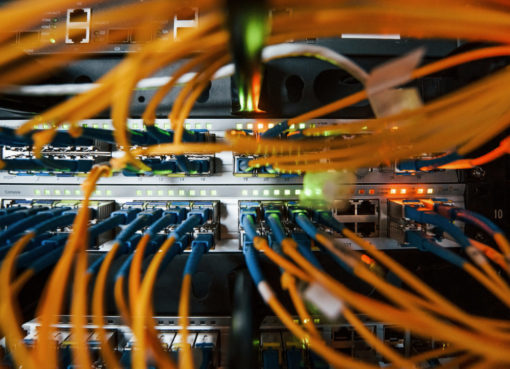A “new era of smarter food safety,” an initiative by the U.S. Food and Drug Administration to “modernize how it honors its commitment to help protect consumers from foodborne illness” won’t be including blockchain technology for food safety for now — despite 2019 comments from a top agency official indicating that integrating the technology into the nation’s food supply chain was on the agenda.
“It’s a new approach to food safety, one that recognizes and builds on the progress made in the past, but also incorporates the use of new technologies that are being used in society and business sectors all around us,” said Frank Yiannas, the FDA’s deputy commissioner for food policy and response, said just over a year ago, in September 2019. “These include blockchain, sensor technology, the internet of things (IoT), and artificial intelligence to create a more digital, traceable and safer food system.”
Yiannas is the FDA’s “chief ambassador to reduce food safety risks,” according to the agency.
But blockchain for food safety didn’t make it past the high-level interest stage, and the agency didn’t appear to even formally pursue a study of the technology’s feasibility. According to a Freedom of Information Act request put forward by Forkast.News, the FDA has not pursued or solicited any requests for proposals from technology vendors nor have they discussed the issue internally. According to Forkast’s FOIA request, Erik Mettler, the agency’s assistant commissioner for partnerships and policy — the official that would be in the middle of any sort of research or negotiation with suitable technology vendors to develop such a system — had not been sent any memos, internal presentations, emails or marketing materials on the topic of blockchain and food safety between 2018 and July 2020.
A spokesperson for the FDA said that the agency continues to study “the unique features and tradeability functions of blockchain technology” and said that emerging technologies are promising when it comes to building a more transparent food system. The spokesperson did not comment on what formal steps the agency was taking (such as pilots) to assess the technology’s potential in real-world scenarios involving food safety.
The New Era of Smarter Food initiative builds upon the existing Food Safety Modernization Act (FSMA), which focuses on a proactive approach to preventing food-borne illnesses through technology by building a fully traceable food supply chain.
Within the United States, the FDA oversees food inspection with the exception of meat, poultry and eggs products (think shelled egg vs. egg whites). In addition, the FDA would oversee food processing while the United States Department of Agriculture (USDA) would regulate the farm the food came from itself. Some have said that this labyrinth regulatory structure is a contributing factor to the outbreak of food-borne diseases.
To be sure, the FDA is not the USDA. The USDA’s Food Safety and Inspection Service (FSIS) contracted IBM to design a blockchain proof-of-concept project to modernize the FSIS food export certification process. That project wrapped up in late June.
So for the FDA, it’s all talk for now with no serious pursuit, as of yet, of blockchain technology for food safety. While officials like Deputy Commissioner Yiannas might mention the technology as a potential solution to alleviate issues in the food supply chain — as he did in June when discussing Covid-19’s impact on the food industry — there’s nothing formal to indicate the agency is seriously considering integrating blockchain into its tech stack for food safety.
“The concept of from farm or factory to face tracing has long been a desire of the FDA and with good reason. There is also the complexity of the food brokerage business. Food brokers buy crops and sell crops through forward contracts as well as buying produce for their customers on the spot market,” said Burke Files, a technology consultant and commercial due diligence expert. “The problem was the cost in computing power to implement. Blockchain technology is slow and requires a great deal more computer power. Blockchain is the Model T of distributed ledger technology. They are amazing but now dated.”
Files explained that new platforms using Asynchronous Byzantine Fault Tolerant (aBFT) or Directed Acyclic Graph (DAG) technology are faster and use less computer power — and are likely better candidates than blockchain technology anyhow for a use case that requires such scale.
“The FDA has seen that “liability” in the private sector has also driven many different models of track and trace that are already far superior to what a centralized model might look like,” Files added.
John Roberts, a San Diego-based blockchain consultant and developer, believes the agency’s reluctance to engage with blockchain for food safety may be based on its own cost-benefit analysis.
“It’s a new technology that they are having trouble balancing the cost to develop something net new, versus going with a more tried and true tech that they can stand up quickly, and take other measures if there are needs to have data locally, or secure,” Roberts told Forkast.News. “A big problem with blockchain, and why I don’t see many clients using it now outside finance, is that there hasn’t been a solution that’s used it and left a path to replicate how they did it.”
“There’s a lot of promise with blockchain, but there’s also not a lot that’s been proven out with the exception of it’s initial use case, finance,” Roberts added. “Until there’s a big win, I think a lot of these other applications of it will be going this same way.”
Other places have shown greater interest in blockchain for food security
Outside the U.S. FDA, the private sector as well as other government regulators have shown much more interest in exploring and integrating blockchain technology for food safety.
The E.U.-funded Food Safety Market (FSM), which is overseen by the European Food Safety Authority, is currently studying blockchain technology as tool for enhancing certification quality and traceability, but this hasn’t evolved from the pilot stage.
In Australia, which has a vibrant agricultural exporting industry, the country’s Trade and Investment Commission — not the food regulator — highlights the industry’s blockchain efforts to ensure a clean supply chain. The commission highlights fruits and vegetables exporter Fresh Supply Co’s involvement with SproutX, a blockchain accelerator, in developing a blockchain powered traceability system that uses QR codes. Latitude 28, an exporter of red meat, is also using blockchain-based traceability technology to give consumers confidence in being able to track their food from farm to table.
China likely has the most comprehensive approach coming top-down from Beijing, which has identified blockchain technology as a key strategic tool. The government-backed China Animal Health And Food Safety Alliance has encouraged firms in the agriculture and food business to integrate the technology. China’s VeChain is working with WalMart in building out a traceability system, and Bright Food’s Cupids Farm Milk, allowing customers to trace their milk from cow to cup.
But the FDA is interested in blockchain technology to track prescription drugs
While the FDA hasn’t shown much formal interest in blockchain technology for food safety, it has studied the technology’s effectiveness for the integrity of the pharmaceutical supply chain.
According to a post on IBM’s blockchain blog, the company wrapped up a pilot in May with the FDA and the Merck drug company to study the ability of “blockchain to connect disparate systems and organizations in order to record a common view of product traceability.”




